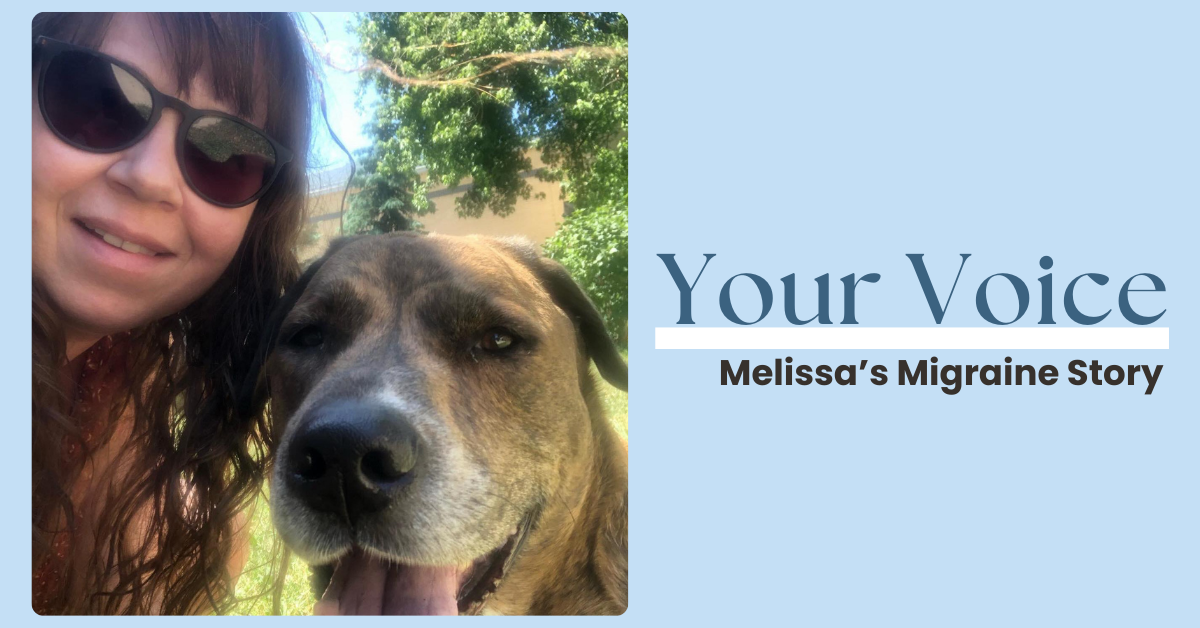Melissa’s Migraine Story
Melissa’s migraine
Melissa’s migraine attacks began around the age of 40 and fluctuate between episodic and chronic. While she rarely experiences aura, her attacks have recently changed, bringing severe nausea that often feels worse than her head pain. Melissa can sense a migraine coming when she experiences neck pain and excessive yawning, even when she’s not tired.
Melissa’s triggers
Melissa has identified several migraine triggers, including processed foods, wine, and changes in the weather, with weather changes being her main trigger. She has had to eliminate wine and processed foods from her diet to minimize her migraine occurrences.
Melissa’s go-to treatments for preventive and acute care
Melissa has tried numerous preventives for her migraine. She finds relief through massages and chiropractic care. Every three weeks she gets nerve block injections to help reduce her pain and the intensity of her migraine. Melissa also takes amitriptyline daily as a preventive, which has been beneficial.
When a migraine strikes, she takes Tylenol 3. She has tried various medications like Imitrex and sumatriptan but had adverse reactions to them. Melissa has been seeing a pain specialist for three years, who has significantly helped her manage her migraine.
How migraine impacts Melissa’s work and personal life
Thankfully, migraine hasn’t significantly impacted Melissa’s work. She manages to push through her five-hour shifts, even when experiencing a migraine. However, in her personal life, migraine has strained her relationship with a close family member, who doesn’t fully grasp the severity of the pain that comes with a migraine attack. Migraine runs in Melissa’s family, with her mother and female cousins also experiencing them.
Supports
Melissa is grateful to have her husband as a support system when she has a migraine. He steps up to handle housework, walk the dogs, and prepare meals when she is incapacitated by an attack.
Accessibility to Treatments
Melissa’s access to migraine treatments improved after she began seeing a pain specialist, who keeps her informed about new medications that are available to her. Melissa’s health benefits also help cover the cost of her medications. If she did not have health benefits, she would not be able to pay for the medication needed to manage her migraine.
Conclusion
Melissa encourages others with migraine to advocate for themselves. If you’re dissatisfied with a doctor or treatment, don’t hesitate to seek new options. Finding a supportive migraine community can be incredibly uplifting and helpful, especially if you are looking to answer your questions about migraine. As the admin for Migraine Ontario on Facebook, Melissa finds great value in connecting with others and encourages fellow sufferers to join such communities for support and information.
Categories
THE MIGRAINE TREE
- BRANCHES
- ACUTE TREATMENTS
- DEVICES AND NEUROMULATIOIN
- PREVENTIVE TREATMENTS
- PROCEDURES AND INJECTIONS
- SELF-CARE AND LIFESTYLE
- SOCIAL LIFE
- TRUNK
- ROOTS
OTHER CATEGORIES



